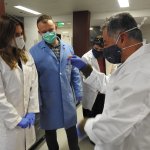
News • Elusive variants
Rare genetic markers of drug-resistant tuberculosis identified
The search for rare mutations in bacterial genome could lead to better diagnostics and treatments – reducing morbidity caused by the deadly disease.

The search for rare mutations in bacterial genome could lead to better diagnostics and treatments – reducing morbidity caused by the deadly disease.
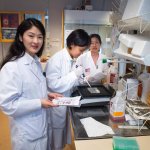
Researchers have developed advanced computer models, or “digital twins”, of diseases, with the goal of improving diagnosis and treatment.
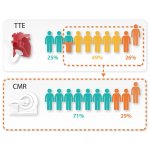
Using MRI scans to detect heart failure could revolutionise how the condition is diagnosed, thanks to new research from the University of East Anglia and the University of Sheffield.

Mental disorders are among the leading causes of ill-health and disability worldwide, and the demand for a viable solution to battle the mental health crisis has risen. The past two decades have witnessed the emergence of extended reality (XR) as a tool for investigation, assessment, and management in mental healthcare.

The in vitro diagnostic regulation (IVDR) aims to make tests safer, more reliable, and sustainable. Unfortunately, it is also widely regarded a bureaucratic nightmare. At the ECCMID Day on Diagnostics, an expert proposed a more constructive approach.

Using mass spectrometry and chromatography techniques, UK researchers have developed an approach to predict infection severity among Covid-19 patients, as well as potential outcomes.

Accurate home testing could be used for a wider range of illnesses, as new research shows the capability of smartphone-powered tests for Dengue Fever.
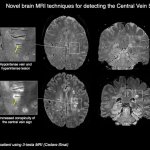
Cedars-Sinai physician-scientists are pioneering imaging techniques and investigating new biomarkers to improve multiple sclerosis (MS) diagnosis and treatment.
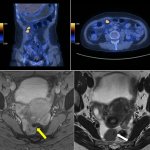
Diagnostic imaging in women’s health advances: PET/CT might provide a more accurate imaging alternative to CT in ovarian cancer. T2*-weighted MR imaging in deep endometriosis detection also shows promise, but ultimately falls flat.

The COVID-19 testing device can detect coronavirus infection in as little as 30 seconds as sensitively and accurately as a PCR test.

The advantages and limitations of the value of traceability chains in therapeutic drug monitoring will be explored during a key session at the EuroMedLab event.
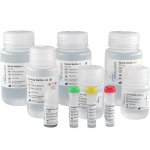
SARS-CoV-2 has heavily impacted global society with high pressure on public health and economics. MolGen is proud to assist in relieving some of the pressure and support the testing framework.
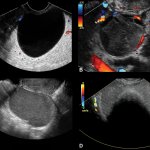
The appearance of ovarian lesions on ultrasound is an effective predictor of cancer risk that can help women avoid unnecessary surgery.
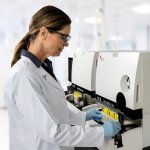
To provide a solution for the challenges of the coronavirus pandemic, Beckman Coulter recently launched the DxU Iris, a urinalysis solution which aims to improve lab workflows.

Liquid profiling is offering clear benefits in terms of cancer diagnostics and targeted therapy, but challenges remain in bringing it into the clinic.

A mathematical analysis of data obtained with a MRI approach can identify brain cell damage in people at early stages of Alzheimer's.

A DNA test has been shown to identify a range of hard-to-diagnose neurological and neuromuscular genetic diseases quicker and more-accurately than existing tests.
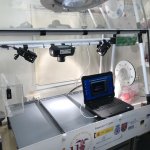
The tool has made it possible to detect SARS-CoV-2 in exudate from symptomatic patients with a sensitivity of 100% and a specificity of 87.5%

With micro-organisms and viruses constantly developing, mutating, and evolving, diagnostics must adapt just as rapidly. Advanced laboratory technology and instruments are undeniably a prerequisite for best practice in life sciences and biotechnology.

Scientists have discovered a means of identifying the risk of breast and ovarian cancer by measuring epigenetic changes in cervical samples from over a thousand women.
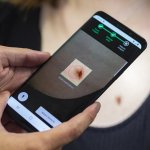
A mobile application assists in recording skin lesions and sends them to dermatology departments in hospitals, speeding up diagnosis of skin cancer.

There has to date been no reliable objective method of diagnosing tinnitus. Now, Swedisch researchers may have found a way to measure changes in the brain associated with constant tinnitus.
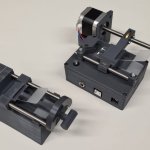
Researchers have developed a device that removes one of the biggest bottlenecks preventing quick, reliable malaria diagnosis.
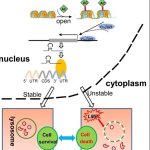
Scientists reported the key role of histone acetylation-regulated long noncoding RNA termed as lysosome cell death regulator (LCDR) in tumor survival, providing a potential diagnostic and therapeutic target for lung cancer.

Autokit CH50 Assay is an in vitro diagnostic (IVD) test for the quantitative determination of total complement activity in human serum. The complement system is a part of the immune system that enhances/complements the ability of antibodies and phagocytic cells to clear pathogens from an organism.